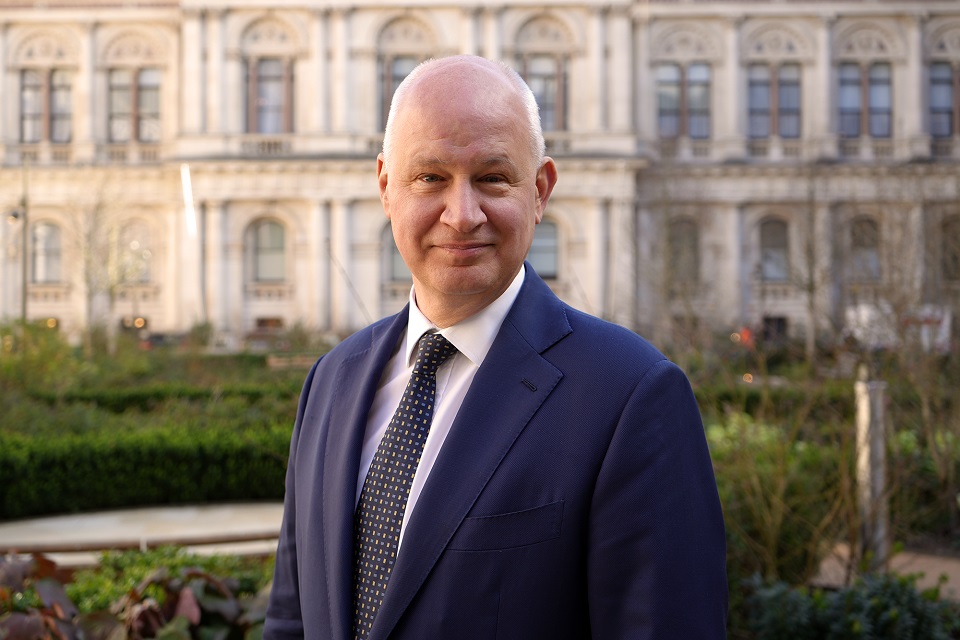"The work of UNOCA is central to consolidating peace and preventing conflict."
Statement by Ambassador Peter Wilson, Deputy Permanent Representative of the UK Mission to the UN, to the Security Council on UNOCA/LRA

Thank you Mr President.
I would like to thank Special Representative Moussa for his statement this morning. I pay tribute to him for his contribution to peace and security in the Central African region during his tenure at the UN Office for Central Africa. The United Kingdom looks forward to working closely with his successor, Special Representative Bathily, on the broad range of issues which UNOCA is working to address.
Mr President,
The Central African region is beset by a wide range of security challenges. Armed groups, who exploit local populations and natural resources to sustain their way of life. Piracy, which damages regional prosperity and security. Terrorism, which strikes fear into communities. Internal conflict, resulting in human rights abuses and threats to democracy. What these challenges have in common is that they cross borders. Overcoming them requires the support and cooperation of neighbouring countries. That is why the work of UNOCA is central to consolidating peace and preventing conflict in the region.
Mr President,
The Lord’s Resistance Army has struck fear into the lives of civilians in the heart of Africa for almost 30 years. They remain an abhorrent menace to peace and security across the region. The concerted efforts of Uganda, the other affected countries, the African Union, the United Nations and other partners have substantially weakened the LRA. Our goal now must be a permanent eradication of the threat that they pose. Countries of the region and the international community must further their efforts to achieve security and stability in the affected countries. That means all regional governments fulfilling their commitments under the AU’s Regional Cooperation Initiative against the LRA and ensuring the AU Regional Task Force is fully operational and conducting patrols in their territory. Until this happens the LRA will continue to evade capture by moving across the porous borders of the affected countries, continuing to carry out their reprehensible acts of criminality with impunity.
Cross-border coordination between the UN Missions in the LRA affected-countries must also be enhanced. MINUSCA should ensure that they coordinate closely with the AU Regional Task Force, sharing information rapidly and harmonising troop deployments. This will help ensure the LRA no longer have safe-havens in areas of the Central African Republic currently out of the reach of the Regional Task Force. The United Kingdom also calls on the Sudanese Government to ensure that the Kafia-Kingi enclave does not become a safe haven for the LRA.
Turning to another aspect of UNOCA’s broader role, UNOCA coordinates activity to combat illegal wildlife trade. Central Africa has displayed the highest levels of poaching on the African continent, losing two-thirds of its elephant population since 2004. Poaching and the illegal wildlife trade not only threaten individual species but also strike at the heart of our goals for good governance, protection of national and regional security, and sustainable economic development.
The United Kingdom welcomes steps taken by regional partners to address these issues. Chad recently burned over one ton of its ivory stockpile, showing it will not tolerate the trade in elephants and Ethiopia has committed to similar action.
Mr President,
There are a number of alarming developments in the wider region. The United Kingdom remains extremely concerned about the situation in the Central African Republic. The humanitarian situation is dire, and armed groups continue to commit human rights abuses and terrorise communities across the country. The United Kingdom welcomes the decision to deploy MINUSCA from 15 September 2014, which will help to improve security in the country, and will aim to promote reconciliation and recovery.
The United Kingdom also continues to be concerned by rising political tensions and the closing of political space in Burundi ahead of elections in May 2015. The international community has a responsibility to ensure that Burundi does not deteriorate further. A continued international presence in Burundi is vital.
We have all been appalled by the kidnap of over 200 schoolgirls in northern Nigeria last month. Boko Haram is a morally repugnant organisation committing vile acts of terrorism. The United Kingdom is providing assistance to the Nigerian Government with their response to the incident. We have sent a team of experts to Nigeria to assist them in finding the missing schoolgirls and to help develop Nigeria’s capacity to prevent similar incidents in future.
However, any effective response to the threat posed by Boko Haram must be done in coordination with Nigeria’s neighbours. We are increasingly concerned about reports which indicate that Boko Haram’s influence outside Nigeria’s borders is growing – it is likely they may now be operating in southern Niger, parts of northern Cameroon and Lake Chad. We call on governments in the region to increase cooperation on the issue and to clearly demonstrate a joint commitment to tackling the problem. We also call on the international community to address Boko Haram’s activities before its position as a regional threat is consolidated.
Mr President,
UNOCA plays a vital role in helping the region overcome these challenges. The efforts of incoming SRSG Bathily will be of critical importance in identifying and pushing forward regional solutions to these cross-border problems.
Thank you.